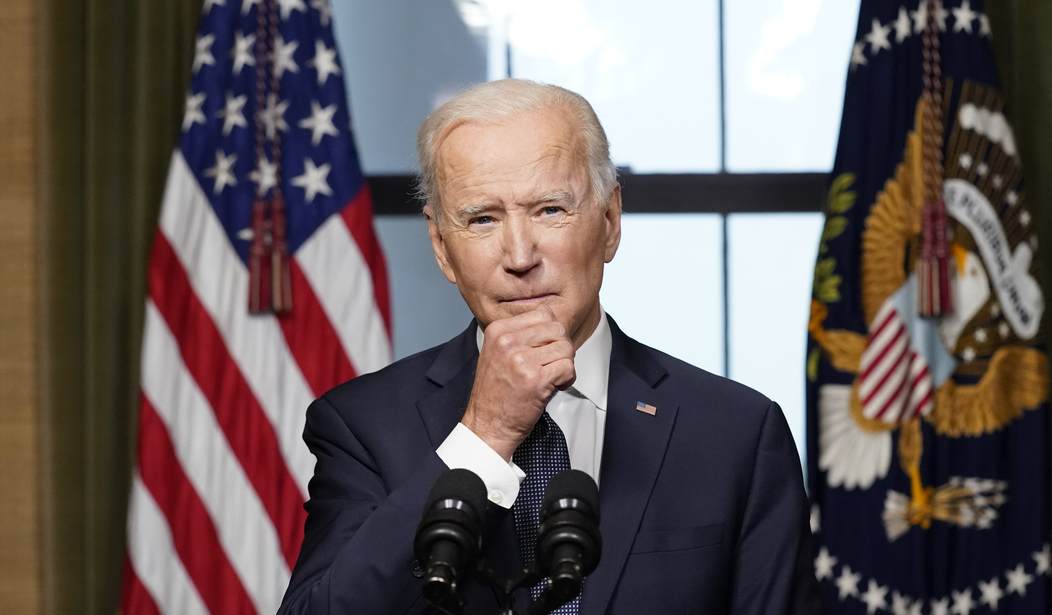Joe Biden’s decision on Afghanistan turned out to mirror Donald Trump’s position on the war. Both presidents seem to have pushed the idea of total withdrawal against the establishment at the Pentagon. And yet, the Washington Post headline on Biden’s process offers a curious spin on this that the reporting by Karen DeYoung and Missy Ryan mainly appears to contradict.
The verbose headline praises Biden for restoring a traditional process:
With Afghanistan decision, Biden restores foreign policymaking process that Trump had largely abandoned
What exactly was the process that Biden restored? The “formal decision process,” according to the lead, which Trump ignored by imposing his own policies ad hoc. Rather than make the decision and give the order, Biden instead held meetings and heard out all the options:
Afghanistan was among the first major issues on which the process, organized and directed by the National Security Council, became fully operational. Dozens of high-level meetings were held, including four separate sessions with the president in the Situation Room. Military, intelligence and diplomatic assessments were compiled, and consultations were held with allies and lawmakers.
Did this change the outcome? Not at all, as it turns out:
Yet at the end of the day, Biden did not budge from where he began nearly 13 years ago, when a visit to Afghanistan as vice president-elect convinced him, he said last week, that “more and endless American military force could not create or sustain a durable Afghan government.”
His decision to withdraw all of the few thousand American troops remaining in Afghanistan by Sept. 11 — the 20th anniversary of the 2001 al-Qaeda terrorist attacks that began the war there — defied the advice of senior military leaders and raised significant national security questions.
Just to be clear, the process didn’t change Biden’s mind at all, and he still ordered a full withdrawal that his generals and advisers oppose. The credit here seems to be, essentially, that Biden spent three months holding meetings — “dozens” of them, in fact — over a policy that he had settled in his mind in 2009. The decision still “defied the advice of senior military leaders and raised significant national security questions,” just as Trump’s decision had.
So … what was gained? Neither president is listening to that advice. At least Trump didn’t waste a lot of time on “dozens” of high-level meetings just to make his advisers feel better.
In fact, it appears that Biden is entirely alone in this decision, at least at the Pentagon:
U.S. officials said that Gen. Mark A. Milley, chairman of the Joint Chiefs of Staff, Gen. Frank McKenzie, head of U.S. Central Command, and Gen. Austin “Scottie” Miller, commander of U.S. and NATO troops, all advocated a conditions-based approach, additional time for negotiation, or, at a minimum, keeping some sort of residual counterterrorism force on the ground in Afghanistan. The generals said that the fall of Kabul to the Taliban, waves of Afghan refugees rushing to neighboring countries and Europe, and the reemergence of al-Qaeda as a potent terrorist threat were very real possibilities. …
Officials said that [Defense Secretary Lloyd] Austin, like his counterparts in uniform, supported a continued military presence, although he shared his personal views with only a small group of people. A Defense official said Austin’s approach was informed by his own experiences in uniform, including in Iraq, where he oversaw the Obama administration’s rapid withdrawal of forces in 2011. Less than three years later, the Islamic State took over a third of the country.
The real story here doesn’t appear to be that Biden restored a process. This reads very much like Biden’s ignoring warnings from the military over his decision, including from his hand-picked Secretary of Defense. That entirely contradicts the idea that anything was gained by restoring a “process” of foreign policy formation in any meaningful way. In the end, the decision is just as arbitrary by this president as it was by the last president — and just as much based on previous political positions, for that matter, than informed by recent events and current status.
And let’s not forget that Trump waited almost four years to make that decision, no doubt with plenty of input on the issues from the Joint Chiefs and the Departments of Defense and State. Biden made that decision in less than three months.
That’s not to argue that Biden’s made the wrong decision, of course. Generals can be wrong, and sometimes get too locked into sunk-cost fallacies like anyone else does. Both Biden and Trump made the competing argument that we’ve been sticking around for years to improve our bargaining position and that it’s time to stop waiting for a perfect time to leave. That’s a defensible argument, at the very least, and may well turn out to be the best decision in a range of nothing but terrible options.
In both cases, however, “process” had nothing to do with that decision. Even by the Washington Post’s own reporting, both decisions came from the presidents and were imposed over objections from their policymaking and military advisors. Why does the Post pretend otherwise?









Join the conversation as a VIP Member